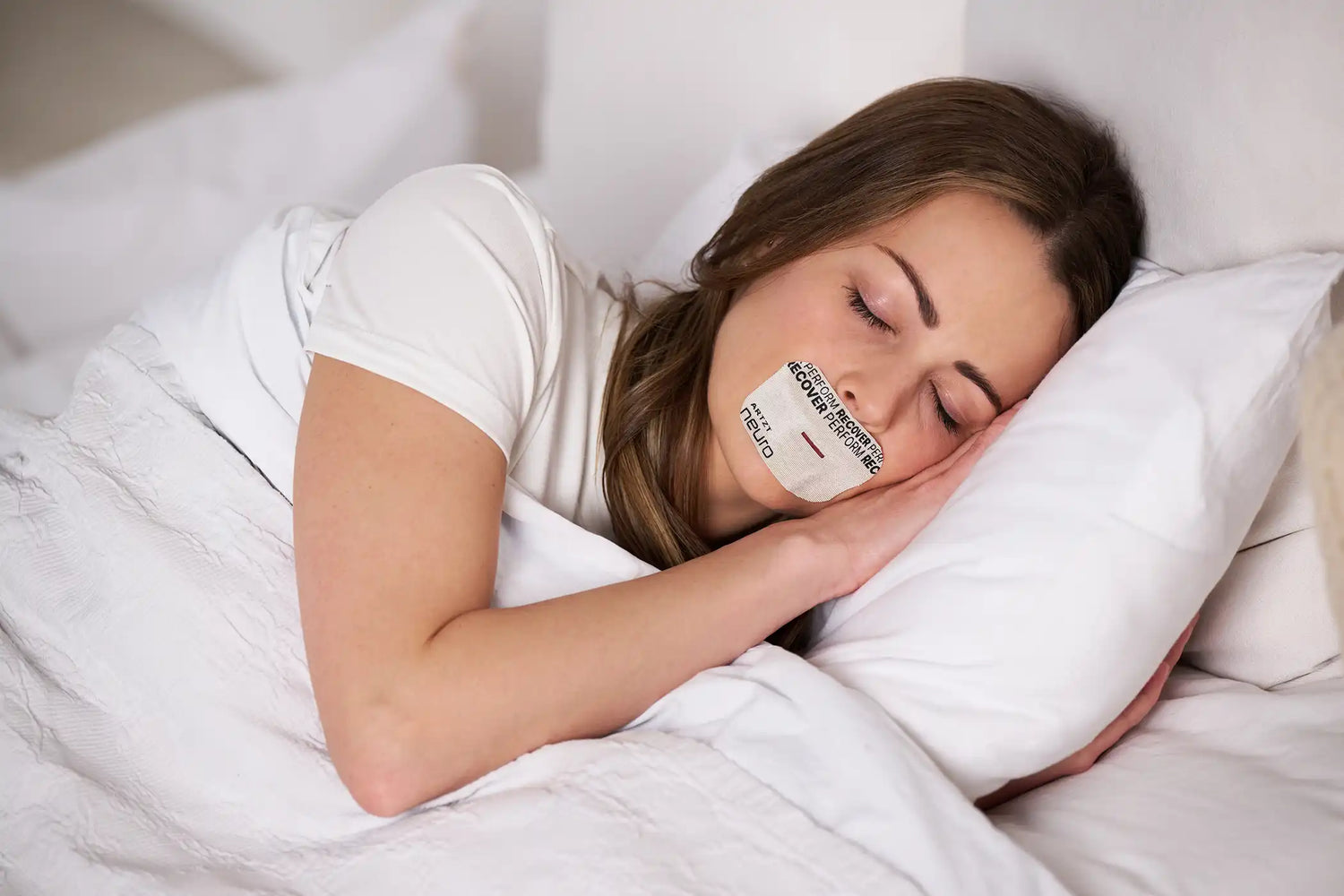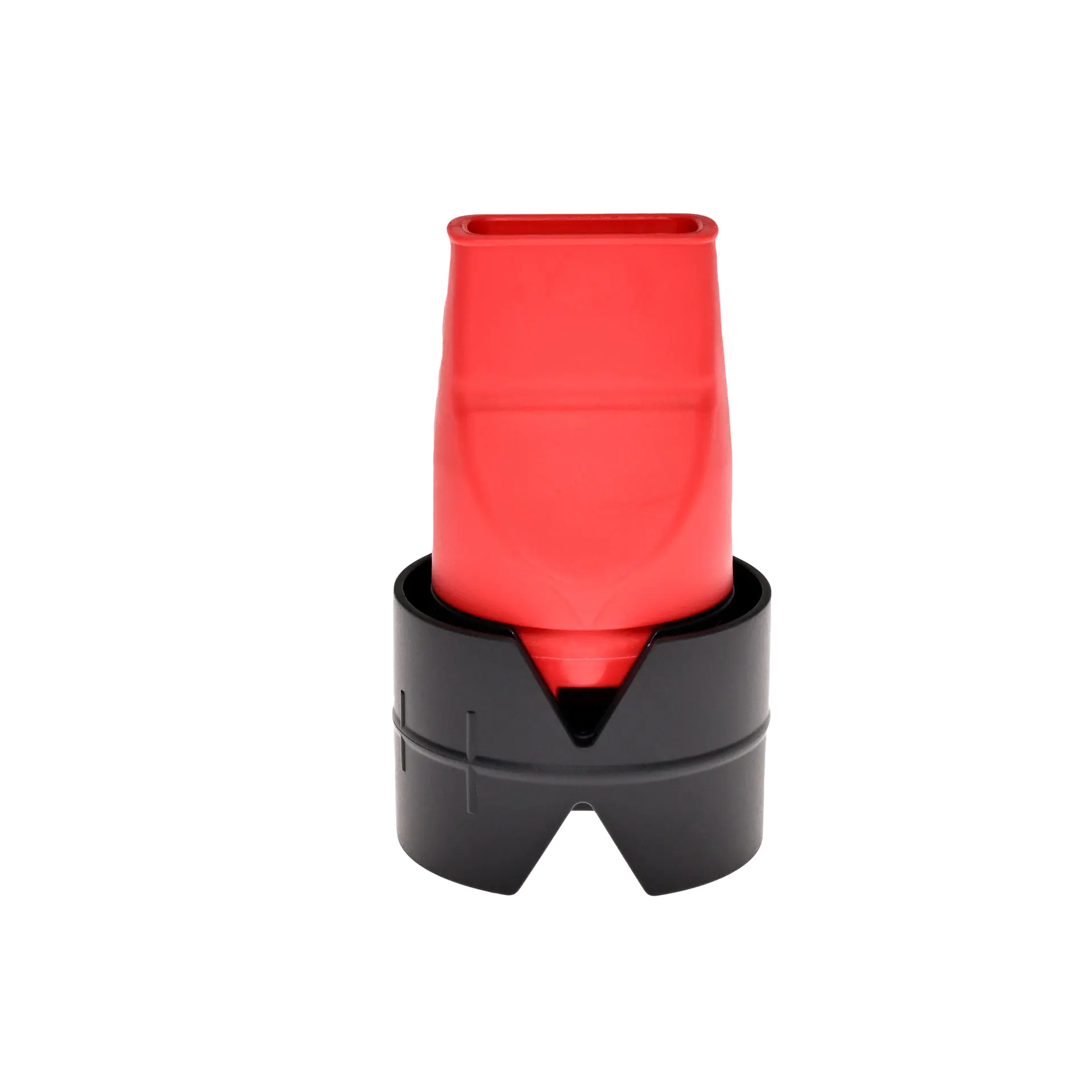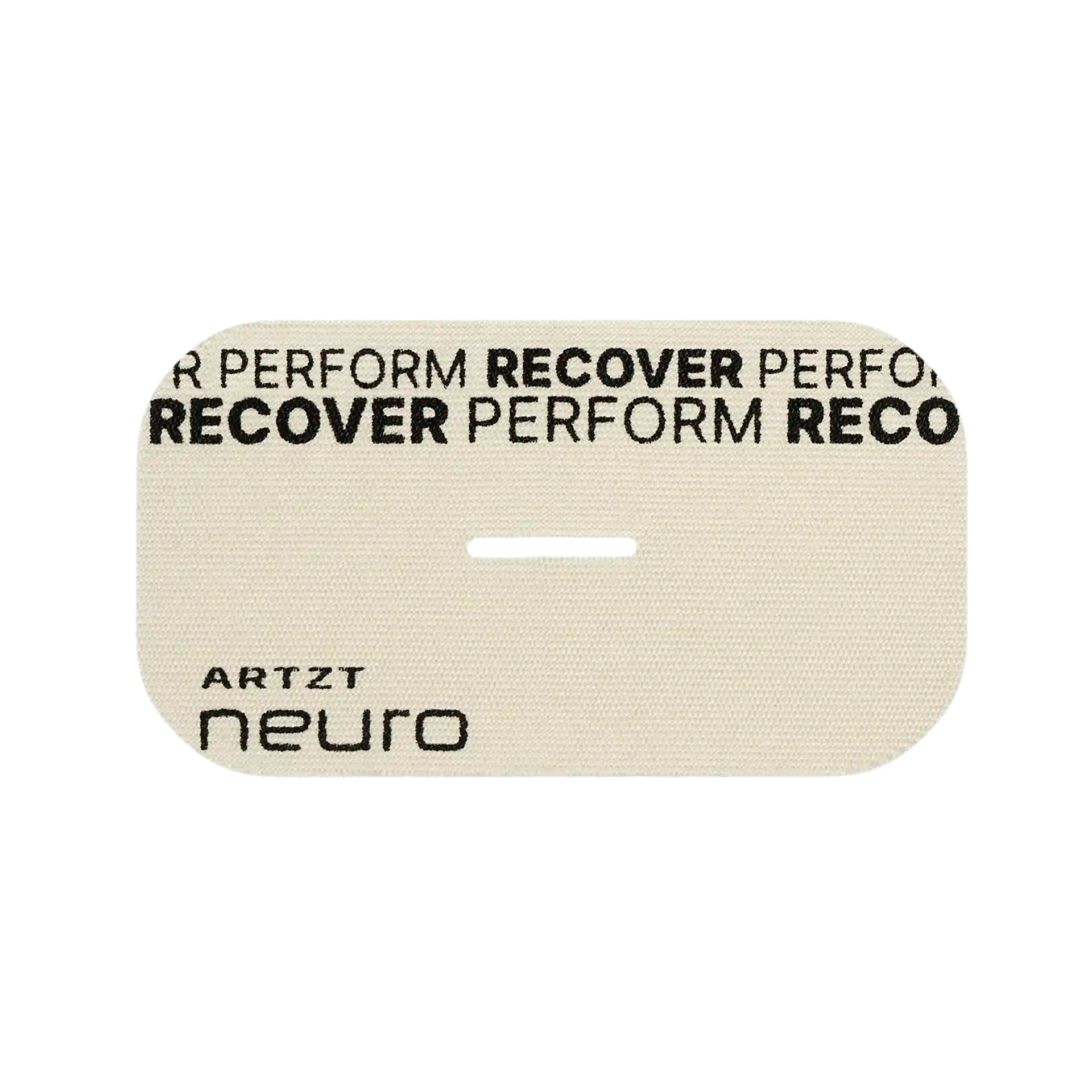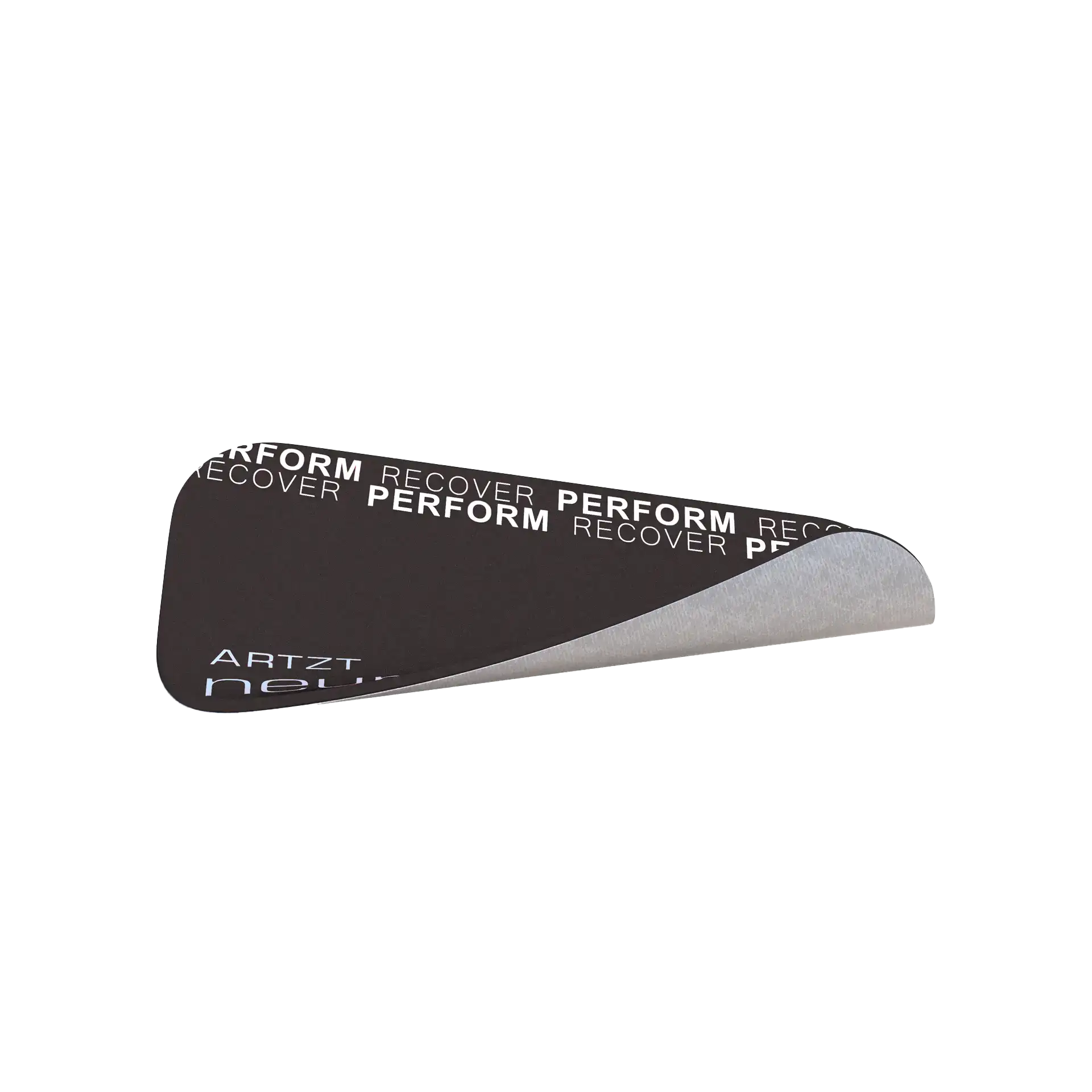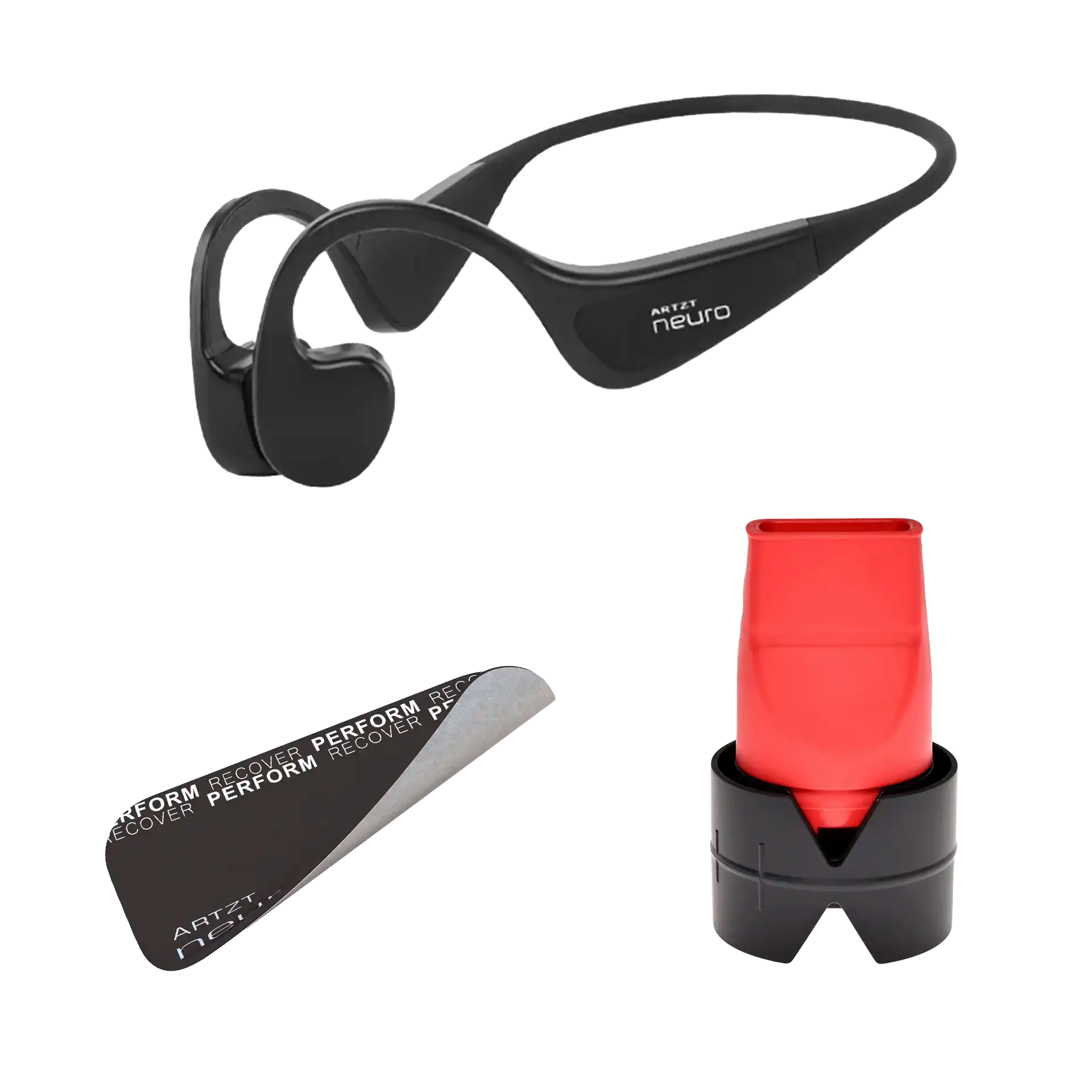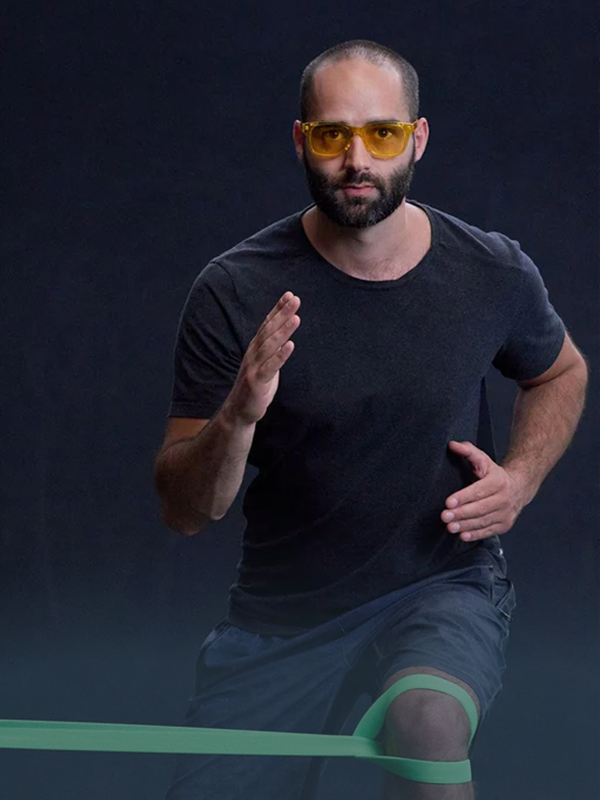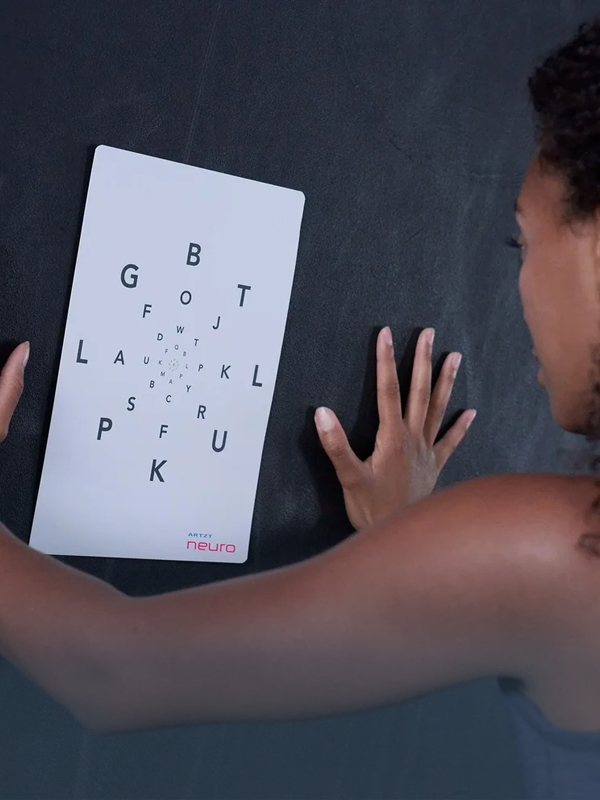Reading time: 5 minutes
Have you ever heard of mouth taping? This breathing method can help you improve your sleep and wake up more rested and energetic the next morning. We'll tell you how it works here.
Contents
What is Mouth Taping?
In an interview , football star Erling Haaland talked about his sleeping routine. The striker covers his mouth with special tape at night. But why does he do that?
So-called mouth taping is a method in which you close your mouth while you sleep with a special adhesive tape, the mouth tape . This may sound a little unusual, but there is a logical reason for it: if you breathe through your mouth, your throat dries out and you may snore and stop breathing ( sleep apnea ). The air you breathe in also enters the body "unfiltered". Germs and pathogens then tend to have an easier time.
How can mouth taping improve sleep?
If you feel exhausted in the morning even though you actually went to bed early, taping your mouth shut might help. After all, good breathing is an important factor for a restful sleep .
When you sleep, your muscles relax and your body is less active. This can cause the muscles in your mouth and throat to relax and block your airway . Mouth taping prevents this airway blockage by redirecting the flow of air through your nose.
The mouth remains closed and you automatically breathe through your nose, which is called nasal breathing . In contrast to mouth breathing, nasal breathing moistens and cleans the air you breathe .
When you breathe through your mouth, the air enters your body unfiltered and dry. When you breathe through your nose, however, your nasal mucosa takes on an important task: it moistens the air, warms it, and filters out dust or pollutants. This protects your mucous membrane and ensures that the oxygen you breathe in can be processed better.
Reading tip: Breathing training – tips and exercises for more health and performance >
Who is Mouth Taping suitable for?
In principle, anyone can try the sleep method. However, if you suffer from chronic breathing problems or are allergic to plasters, you should discuss using them with your doctor first. If you have a cold and your nose is blocked, you should wait until the cold has gone. Don't worry: you can't suffocate in your sleep. Your body's natural reflex will wake you up beforehand.
What are the benefits of mouth taping?
The principle is simple: before going to sleep, the special adhesive tape is stuck to the mouth to prevent mouth breathing. The method ensures that you only breathe in and out through your nose. This makes you less susceptible to colds and infections , as the inhaled air is filtered through the nose and enriched with moisture.
4 Tips for Using Mouth Tapes
For successful mouth taping, there are four steps you should follow:
1. Take your time. First of all, it is important that you are aware that mouth taping means an adjustment for your body and will not work perfectly within a few seconds. So give yourself time to get used to the new breathing pattern.
2. The right tape. Make sure that the tape you use is hypoallergenic and breathable so that your skin is not irritated and you can still breathe well despite the tape - especially if you are allergic. Conventional adhesive tape is not suitable for mouth taping! It is not made for permanent contact with the skin and can irritate it and even injure it when removed.
Tip: Mouth tapes with a special breathing slot can help you if you want to start mouth taping slowly or have problems breathing through your nose.
3. Cleanliness. Make sure your mouth is clean and dry before applying the sticker. Also avoid too much saliva in the mouth or too much moisture in the air, as this can cause the tape to not stick properly.
Once you have applied the mouth tape, check that it is secure and there are no wrinkles or air bubbles. You can easily check this by running your fingers over the tape to smooth it out.
4. The right preparation. Start by wearing the tape for just a few minutes a day and gradually increase the wearing time. This way you will slowly get used to the new breathing technique.
Note that you probably won't see a noticeable improvement after the first night. Mouth taping takes time and patience. Try it out for a few nights and pay conscious attention to how you feel the next day.
Is mouth taping dangerous?
In general, mouth taping is considered a safe method if used correctly. One study suggests that it can improve breathing in sleep apnea syndrome (brief pauses in breathing during sleep) by promoting nasal breathing. This allows the air to be better filtered, humidified and enriched with nitric oxide, which can have positive effects on the nervous system and oxygen uptake. Skin irritation can be avoided by using hypoallergenic tape. It is important that people with chronic breathing problems or a very blocked nose consult a doctor beforehand.
Conclusion: Mouth taping can affect sleep quality and health
Taping your mouth shut can help you promote healthier nasal breathing. This allows your body to relax, relieves pressure on your lungs, and makes it easier to rest . However, everyone reacts differently to the change. It may take a few days before you notice a noticeable change - be it in your sleep quality, teeth grinding, or snoring.
However, it may also happen that the method has no effect on your sleep quality or your well-being. If you feel tired and weak while sleeping despite having your mouth taped shut, the reason may lie elsewhere and you need other therapy methods. In this case, it may be a good idea to seek medical help to rule out any potential health risks.
Reading tip: Activating the vagus nerve: 3 simple exercises for more relaxation and serenity >
The effect of mouth taping has not been scientifically proven. However, there is a general consensus in research that nasal breathing is an "air conditioner" for the lungs and body . Mouth breathing, on the other hand, is suspected of having disadvantages, as the air enters the body unfiltered this way.
It remains unclear whether mouth taping actually contributed to Erling Haaland scoring 36 goals in 35 games. But one fact is: after a good night's sleep with healthy breathing, you'll be more focused and productive the next day. So mouth taping is worth a try - because this breathing method is much more than just a trend!
Reading tip: More endurance, concentration and energy through correct breathing in sports – this is how the pros train >

